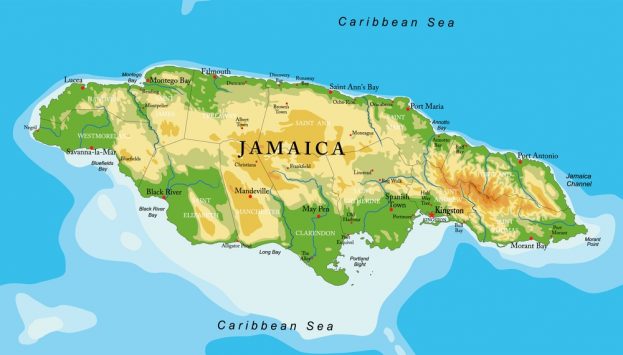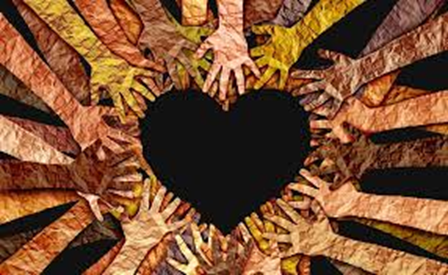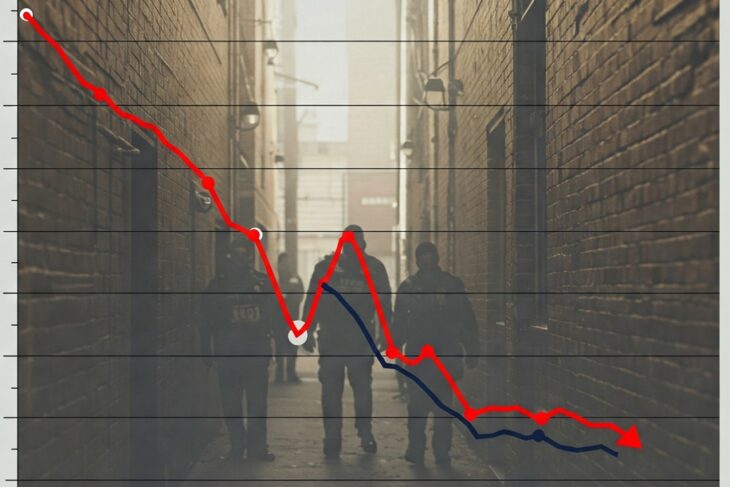
“These six things doth the LORD hate: Yea, seven are an abomination unto him: A proud look, A lying tongue, Hands that shed innocent blood, A heart that deviseth wicked imaginations, Feet that be swift in running to mischief, A false witness that speaketh lies, and he that soweth discord among brethren.”
— Proverbs 6:16-19
Politicians, the world over, have a bad reputation. However, there are those who are exceptions to the rule, but they are rare. Jamaica has had its share but, unfortunately, our record has been consistent with the “bad rap” received by those who govern elsewhere.
Our politicians could never be accused of oppressing other peoples. But their hands are not clean when it comes to their own people, especially those in the social underclass. And so the quotation from the Book of Proverbs in respect to the political apartheid that they have created is apropos.
Politicians, out of lust for power and greed, have cultivated a culture of prejudice, privation, psychological pain, economic loss, fragmented families, and social oppression. They have habitually blamed those they manipulated for the scourge of crime. For some, this is academic. But, for my friend, Horatio, they are parts of a nightmare that he has endured for much of his life. It was through his eyes that I learned of the terror and suffering created by politicians.
The attempted assassination of Bob Marley in 1976; the Green Bay Massacre in 1978; and the deadly violence during the 1980 general elections are notable examples. These were not run of the mill acts of violence, but ones committed at the direction, and on the approval of politicians. The poor were sent to war against the poor.
“Political Identity And Criminal Violence In Jamaica: The Garrison Community Of August Town And The 2002 Election”, by Professor Christopher A.D. Charles of The University of The West Indies, helps to shed light on what life is like for the residents in that community. It could be used to extrapolate what goes on in other garrison communities. Professor Charles stated that:
“The residents….incorporate their corners or social spaces as a part of their group identity. The various corners are allied to rival political parties under the leadership of area leaders. The criminal gangs who rule these corners are also allied to the major political parties…..The political competition in the 2002 election made political identity salient and several residents were shot and others killed as the rival gangs employed their criminal expertise in the service of their political parties. The violence continued into the post-election period.”
South African apartheid was a discriminatory system based on race. In the Jamaican milieu, anyone hailing from a community deemed to be a ghetto, or a poor area, especially a political enclave, is subject to prejudice. This is akin to racial apartheid. Unlike South Africa, Jamaica has no de jure policy of that sort,but it is a sociological reality, enforced by the political party in power.
Benefits open to all are accessible mainly to the party faithful. Some escape the ghetto, but not everyone, and the success of the few is used to condemn the unsuccessful. Jamaica’s political tribalism is based on where one has the misfortune to live.
Some think that classism, which figures prominently in our political climate, is dead. However, one only needs to recall the negative reaction of the people in the Hope Road area when Bob Marley purchased and moved into a large house in their neighbourhood.
Usain Bolt, who also took up residence in a similar neighbourhood, complained of prejudice shown against him. These accounts underscore the assertions made by Horatio.
It is one thing to read of political violence and discrimination in the newspapers, but it is another when one is caught in their crosshairs. Such was the case with my schoolmate, Horatio.
We were, among our Alma Mater’s “first formers”. Like so many on our first day in high school we were wide-eyed with wonder at the sights of our new surroundings. Without question, there was a mix of emotions, but we had made it! We now all had an equal shot at everything that life had to offer. I am certain that many within our ranks thought that was the case. But that was hardly the reality of the situation.
Despite youthful naïveté, a few among us knew far better. They were wise beyond their years, having no choice but to grow up fast. Horatio, was one such student. He was not only “book smart” but “street smart”. He had to be, not just to be able to grasp the daunting array of information which awaited, but also to be able to survive death every day, both on his way to and from school, and for every hour spent in his community.
When life presented hints that some of my schoolmates were having it harder than most, I, like many of my peers, was clueless. Perhaps it was because they never complained. As to why some were more assertive against injustices, I chalked it up solely to their strength of character, like Horatio, not to their home environment. Then there were schoolmates with a gun, with knives and other sharp implements that were confiscated by teachers. Contraband not needed in school, but needed without.
I never gave much thought to the nickname which our schoolmates gave to him, indicating the part of the “Corporate Area” that he hailed from. I came to know, in time, that it was an area fraught with unremitting danger. But, as to the scope and nature of the threats that it and other areas like it posed, such things were blind to me. Horatio never took issue with his nickname. However, off campus, it could have gotten him killed.
School was a haven. But Horatio was harassed by teachers because of where he was from. When there was trouble he was usually pulled in for questioning as one of “the usual suspects”. Perhaps his greatest “crime” was his refusal to behave as a snitch, a habit which could have had him killed, he said, in a world where there were funerals every Sunday for young men murdered by rivals from other communities and the police.
When we left school for home, some had bus routes that took us straight home, and others had to transfer to other buses to complete their journey. For Horatio, his travels were more circuitous to avoid trouble and death. Faces were known in his and in neighbouring communities, and one could be bullied, robbed or killed for looking out of place in the “wrong area”. Taking shortcuts was fraught with danger. And, after many had arrived home safely, Horatio had no such guarantees where gunfire, curfews and families weeping for their dead were all a part of life. Such experiences are as vivid to Horatio today as when he was young. I heard pain in his voice, but not hatred. And who does he blame? The politicians. His experience is consistent with history and Social Science research.
Horatio’s political leanings did not align with the tribalism engendered by the political party which exerted control in his area. He is apolitical, able to identify politicians from both prominent political parties who were responsible for stoking the fires of hatred and violence, able to speak of the good done by them — regardless of ideology.
Jamaican political apartheid still haunts Horatio today, though he resides abroad. It was not just prejudice exhibited by those in opposing communities towards each other, but by those from the outside, those materially “better off”, and those who saw themselves as “better than” those within. He has not been back home in decades, but from all reporting, nothing has changed.
Though a “zip code” no longer proscribes his opportunities, it has left an indelible stain on his psyche. Those who could have been his brothers were pitted against each other by our leaders. They were made enemies through the manipulation of geographic boundaries, by demagoguery, and by the sinister transformation of superfluous colours, dyed either green or orange with toxic effect. And the pillars of this diabolical mischief were poverty and hunger.
But, if one is to believe the causes of poverty and oppression, the way that politicians tell it, one would absolve them of all culpability. With every cry against crime and violence politicians tend to focus the spotlight on depressed communities, stating that therein lies the problem. According to Horatio, society has been duped into looking in the wrong places. The source of the problem is to be found in the machinery of the major political parties. Like the colonial planters who brought in the mongoose to deal with the problems of rats and snakes in the cane fields, politicians brought in the guns to exterminate their political rivals. When there were fewer rats and snakes, the mongoose began to eat the farmers’ chickens. The mongoose which, at first, heralded hope, was now out of control, and so is political tribalism.
Now that crime and violence have broken free from the ghetto, able to walk uptown, the alarm bells ring with greater urgency than when Horatio was young, when they were the preserve of the poor. Life is cheap in the ghetto. One’s good name is lumped in with hoodlums. Horatio knows this all too well. As a lover of history, our political tribalism reminded him of the colonial forces that were at work in the early days of Jamaica. We now have a type of neocolonialism, one of “divide and conquer”, in the vein of the old European powers. What they were unable to achieve by defeating our ancestors they were able to do through a home grown “fifth column”, possessing small minds and unbridled greed — turning brother against brother.
Politicians prescribe band-aids for deep-seated problems. Their policies tinker but do not transform, with just enough money expended to imply progress, but with the lion’s share going into their pockets. One such “solution”, is their call for a break with our colonial past in respect to our style of governance. Diverting legal appeals from the British Privy Council to the Caribbean Court of Justice, for example, has its place, if for no other reason than its positive psychological effects. But we need something positive, transformative and lasting. What they have been asking for is palliative. Morphing from Governor General into a constitutional President is not likely to solve fundamental problems.
We need an excision done on our political system and on attitudes which shaped it and are being shaped by it. Against crime, discrimination, economic privation, and corruption we have been looking at the effects experienced downstream which were brought about by pollutants thrown in upstream. But, how do we effect change with the foxes guarding the henhouse? Will another general election achieve this? Could the institution of laws to deal with the behaviour of politicians as capital crimes work? Are more police personnel the solution? If so, wouldn’t, or shouldn’t crime have been under control by now? Is telling our children to avoid violence enough?
Our motto, “Out of Many, One People”, is clearly aspirational. Many could argue that it has no basis in reality. Classism is still evident, and the concerns of racial and ethnic inferiority, bred by colonialism, have not gone into remission. Crime is still on the rise, and to do nothing is not an option. These vexing concerns should not be met with cynicism. Old habits die hard. Attitudes instilled and practised for centuries will not vanish in a few decades. But when those who hold the levers of power exploit them, then their actions must be treated, severely, as treason.



